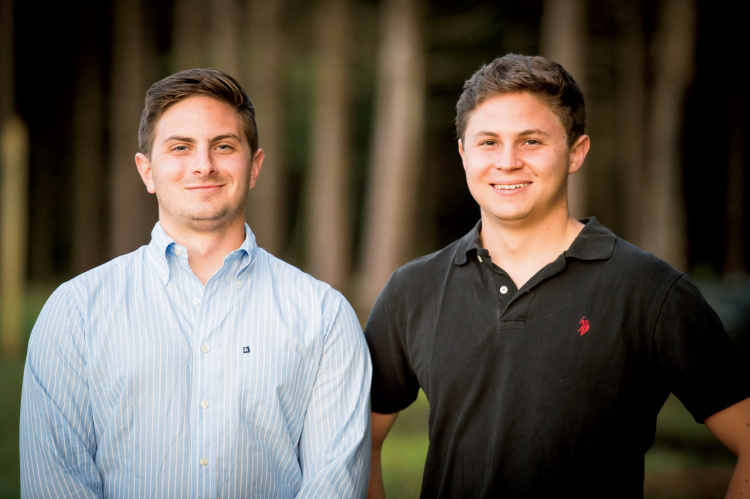Home > Virginia > Virginia Farm to Table > How Vertical Farming Can Help With Food Insecurity
How Vertical Farming Can Help With Food Insecurity
In partnership with: Virginia Department of Agriculture and Consumer Services

Brothers Mike and Jack Ross love solving problems. Although the pair, who both studied engineering, didn’t grow up around agriculture, their recent problem-solving venture is set to change the face of the indoor farming industry.
“A few years back, we took a trip to some farms in California and began to debate how much energy was being used to grow the produce we were seeing,” Jack Ross says. “We wanted to understand the process more in-depth, so we started researching the energy used not only to grow our food, but also to get it to its final destination.”
The brothers discovered that solar panels are extremely efficient in catching the sun’s energy – even more so than plants – and combined that with their interest in hydroponics, along with the challenges of lack of machinery for already existing indoor farms.
“This seemed like a great opportunity for us to apply our engineering knowledge to solve a meaningful problem: sustainably growing an abundance of healthy food in every community,” Mike Ross says.
That opportunity led the brothers to found Beanstalk, which aims to grow healthy produce in indoor, robotic vertical farms. This technology lends itself to more urban areas, which is beneficial to consumers in Virginia and beyond who may not be able to find farm-fresh produce close to them.
“At Beanstalk, we take a very different approach to farming – one that has been used in other industries to produce high-quality goods at low cost,” Mike says. “We created a manufacturing line that grows plants. It’s a highly automated process and much denser than other indoor farms, since there is no need to design for human access. In a very small amount of space, we can grow food to feed cities.”
To do this, the company uses broad-spectrum LED lights that mimic the sun indoors. Plants are stacked in layers, each with its own light, climate control and nutrient system. The company grows heirloom produce seeds through the hydroponic method – which means growing plants by cycling nutrients through water onto exposed roots rather than through soil. This also allows for growing without pesticides, so Mike says the company’s food is always clean and ready to eat.
While the technology is impressive, Beanstalk’s ultimate mission is even better – to make healthy and fresh food affordable for everyone.
“Jack and I chose this mission largely because of the experiences we had while attending high school at Gonzaga in D.C.,” Mike says. “We were given the opportunity to serve food to people in need, and through that service, we saw how incredibly challenging it is to find healthy and affordable food. Those experiences will drive many of our efforts over the long term.”
Jack adds that they feel food security is something everyone should have and believe that healthy food should be available, affordable and safe.
“By growing food completely indoors in a controlled environment, we are able to ensure each community has its own food source by building farms in any city around the world,” Mike says. “The technologies that we develop and implement allow us to reach a scale and price point that does not currently exist.”
As for the future, the brothers plan to expand the team of farmers, scientists, engineers and operators at Beanstalk over the next couple of years, continuing to research and develop new crops that can be grown indoors, and ultimately, winning in the battle against food insecurity.



